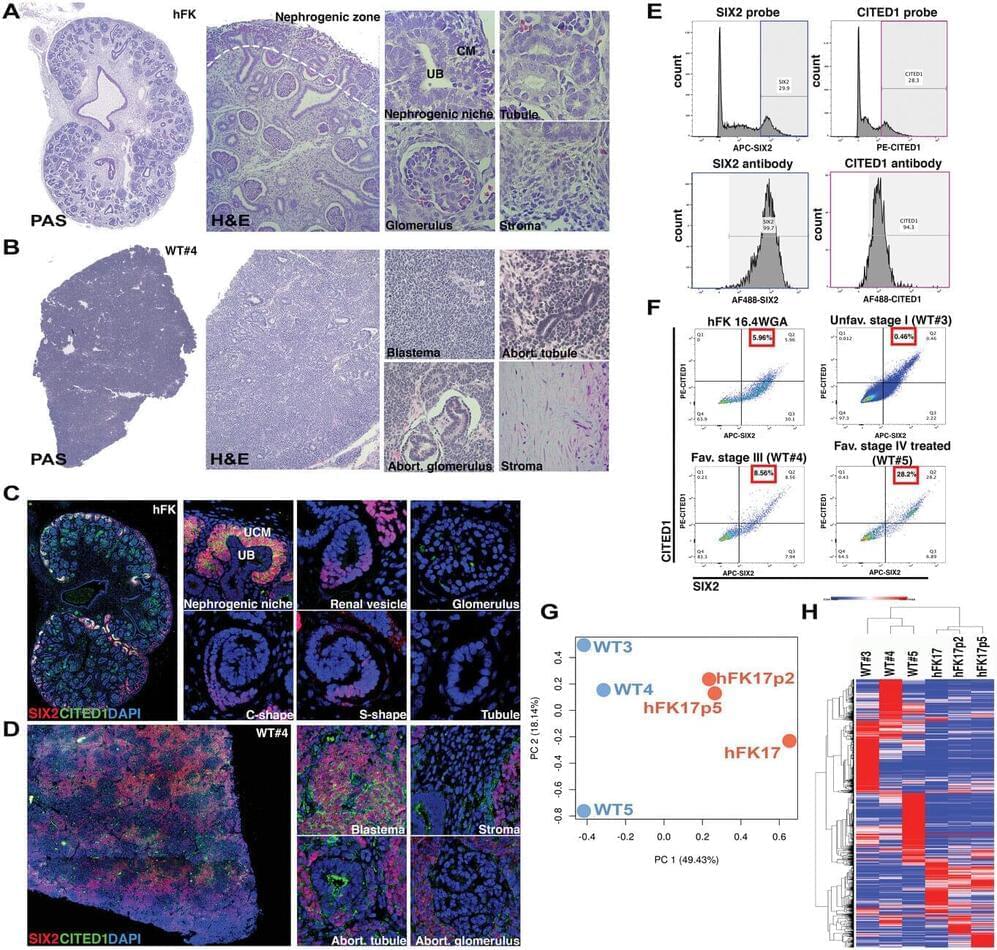While Wilms tumor—also known as nephroblastoma—is rare, it is the most prevalent childhood kidney cancer. Researchers at Children’s Hospital Los Angeles have now pinpointed a disruption in early kidney progenitor cell development that can be linked to the formation of Wilms tumor.
In a study published in Advanced Science, researchers at the GOFARR Laboratory in Urology compared kidney progenitor cells from a tumor with precursor cells from a healthy kidney. Normally, these precursor cells mature into kidney cells, but when their early development is dysregulated, they behave like cancer stem cells.
While most children with Wilms tumor are successfully treated, current therapies are aggressive. A minority of these patients have unfavorable prognoses or relapses; for these children, there is no existing therapy. “By achieving a more precise understanding of how Wilms tumors develop, our goal is to find new treatments for all types of Wilms tumor,” says Laura Perin, Ph.D., Co-Director of the GOFARR laboratory and senior study co-author with Stefano Da Sacco, Ph.D., another researcher at the GOFARR Laboratory.
